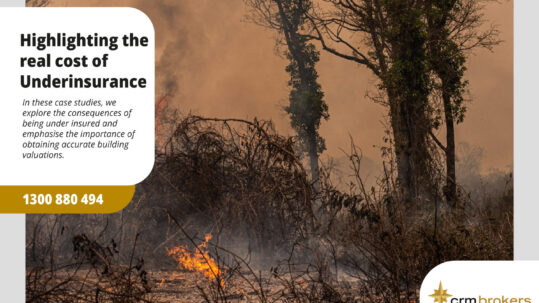
01 May How to prepare for unexpected risks: A business survival guide
How to prepare for unexpected risks: A business survival guide
Most small business owners are born optimists. After all, why take the plunge unless you’re confident you can stay afloat? But positive thinking can only take you so far. To succeed in business and stay on course, you also need to think about what could possibly go wrong and seek the help of an expert.
All business involves risk. From natural disasters, such as fire and flood, to theft, or building works on your doorstep that disrupt your trade. It’s impossible to predict, let alone prevent, all future risks. But there are 4 key steps to take to reduce the impact on your business. Do it right and you won’t just survive, you could thrive.
1. Identify your risks.
The first thing to do is to compile a list of risks you could potentially face. It would be helpful at this point to tap into the experience of an insurance broker, a business mentor or your business networks. The government also has an online guide to help you assess your business risks, which you will find, here.
Every business is different and so are the risks they face. For example, if you run a retail food outlet and rely on refrigeration, then a power outage could result in stock losses. Worse still, your customers could suffer from food poisoning. Or if you run an online business and your internet connection is down for hours or days, you risk losing business and customer goodwill.
As well as physical risk to your business property, employees or clients, think about potential disruption to the market you operate in and less tangible things, such as risks to your business reputation.
CRM Brokers can work with you by helping to idenify those right which are insurable. With this advice you can then make an informed decision to find the right cover to protect your business against the unexpected.
2. Managing risks.
Once you’ve identified your risks, it’s time to put in place some strategies to manage them. The best time to consider your risk management strategy is when you draw up your business plan. If you haven’t already done so, download a template here. Don’t forget you will need to revisit your risk strategy and update insurances as your business grows.
Just as there are many ways to bake a cake, there are many ways to manage risk. Find some suggestions to get you thinking on the government’s business portal.
You can also cost-effectively reduce some risks with simple actions, such as regularly backing up your computer data, installing smoke alarms or providing your staff with safety training. Likewise you could also consider outsourcing tasks, such as bookkeeping or computer networking, to reduce your risk of costly errors or malfunctions.
You can also buy protection against many business risks through insurance. Some insurances are required by law, such as workers’ compensation to cover injuries to your employees or professional indemnity for certain occupations. Others simply make good business sense, such as management liability. CRM Brokers can provide you with tailored advice.
3. Cover all bases.
Most people understand the need to insure their business assets, such as buildings, contents and motor vehicles for events such as fire, theft or damage. But business interruption insurance is arguably just as important. This helps cover any loss of revenue if you are prevented from trading due to an unforeseen event. It also provides cover where you cannot access your premises due to damage to adjoining premises.
Even if you are working from home, you may need to consider public liability insurance and professional indemnity insurance. These offer protection if a client is injured on your home turf or takes legal action against you as a result of your professional advice.
4. Seek advice.
CRM Brokers have in-depth knowledge of insurance products and can suggest a business insurance package tailored to suit your business. This is often more cost-effective than putting together a patchwork of single policies that could leave you exposed.
Don’t jeopardise all your hard work by failing to take account of the risks. With a bit of thought, and help from experts, you can put a plan in place to help you bounce back if disaster strikes.
Contact a CRM Broker today, who’ll be able to help you and your business prepare for the unexpected risks.
Stay Informed – Connect with us on LinkedIn
Important Notice
This article provides information rather than financial product or other advice. The content of this article, including any information contained in it, has been prepared without taking into account your objectives, financial situation or needs. You should consider the appropriateness of the information, taking these matters into account, before you act on any information. In particular, you should review the product disclosure statement for any product that the information relates to it before acquiring the product.
Information is current as at the date the article is written as specified within it but is subject to change. CRM Brokers make no representation as to the accuracy or completeness of the information. Various third parties have contributed to the production of this content. All information is subject to copyright and may not be reproduced without the prior written consent of CRM Brokers.
Strata Insurance Insights: The Real Cost of Underinsurance
Simply put, underinsurance occurs when the sums insured are not sufficient to co...
11 April, 2024Strata Insurance Insights: Building Valuations
While securing appropriate insurance coverage is fundamental for strata property...
14 March, 2024The Alarming Rise of Business Email Compromise and the Vital Role of Cyber Insurance
In today’s rapidly evolving cyber threat landscape, cybercriminals are con...
27 February, 2024Navigating High-Risk Tenancies and Property Insurance
When it comes to insuring properties with commercial tenants, regardless of whet...
13 February, 2024





